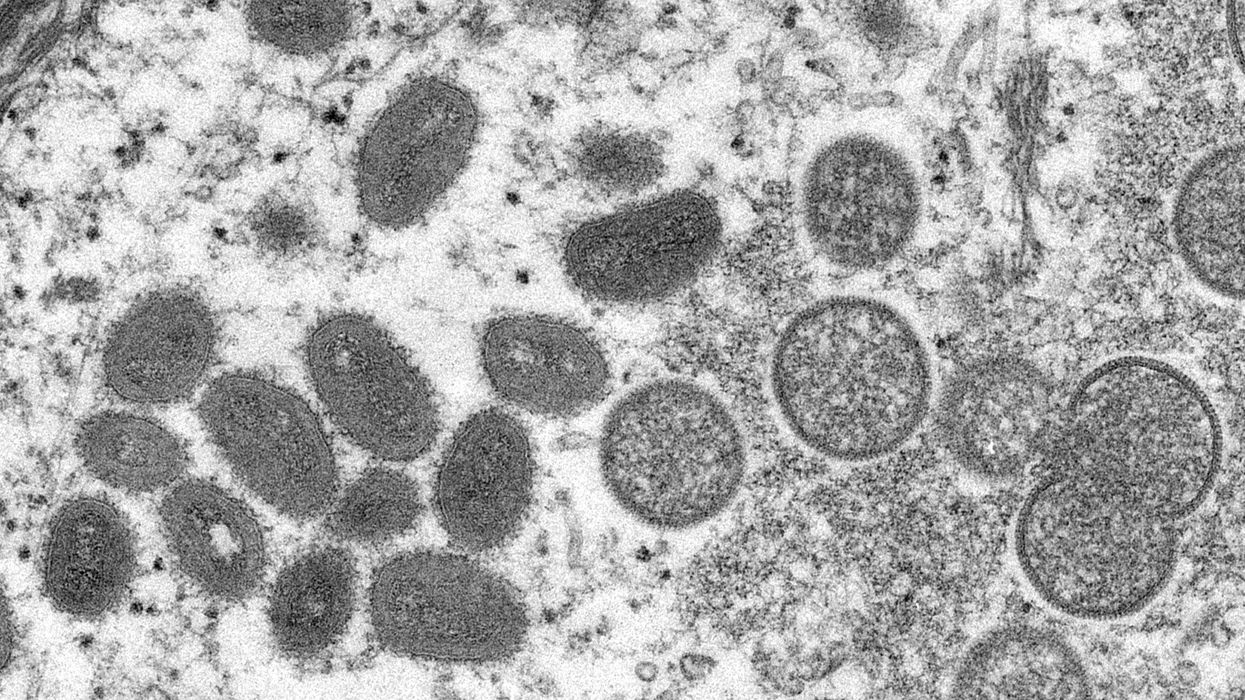(CNN) -- There have been more than 25,000 MPX cases in the United States during the current outbreak, and deaths among MPX patients are rare.
Among the few reported, it has sometimes been difficult to determine the role MPX played in the deaths.
"It's sort of the old situation we had with Covid: Did you die of Covid, or did you die with Covid? And so this is the same scenario: Did you die with monkeypox, or did you die of Monkeypox?" said Lori Tremmel Freeman, chief executive officer of the National Association of County and City Health Officials.
The first confirmed US death due to MPX was reported in Los Angeles County in September. A person with MPX in Houston died in August, but officials have not determined whether the virus caused the death. On Thursday, Ohio reported its first death of a person with MPX but noted that "the individual also had other health conditions."
Many people who have been infected with MPX in this outbreak also have compromised immune systems or underlying health conditions, such as HIV. It can be tough for officials to determine whether a death in fact was caused by MPX or whether the person died of an underlying health condition while they happened to be infected with MPX.
Research from other outbreaks has found that deaths from MPX more often affect babies, pregnant women and people with weakened immune systems.
The experts must ask, "were your underlying conditions so great that this type of disease would have a tremendously more impactful impact on your ability to survive?" Freeman said.
Potential for severe illness
Globally, there have been more than 68,000 MPX cases and 25 confirmed deaths in the current outbreak, according to the World Health Organization.
New MPX cases in the United States have been steadily dropping in recent weeks, but concern remains about the possibility of severe illness or death, especially in immunocompromised people. In an alert sent to health care providers on Thursday, the CDC said some people with with monkeypox have had "severe manifestations" of the illness, extended hospitalizations or "substantial" health problems.
"People who are immunocompromised due to HIV or other conditions are at higher risk for severe manifestations of monkeypox than people who are immunocompetent," the CDC reported.
The L.A. County resident who died was "severely immunocompromised and had been hospitalized," according to a news release from the county's Department of Public Health.
"It just points to, I think, the greater message that even though we've sort of slated this disease as a mild disease that can be overcome with vaccine and treatment and other mitigation efforts, for people who have these conditions already, it can be deadly," Freeman said.
"So it's not a disease that one should not worry about, especially if you know you have a compromised immune system or you're dealing with some other serious conditions," she added. "These few deaths -- whether or not they're fully attributable to monkeypox or people died with monkeypox -- they likely wouldn't have died if they didn't have some of these underlying conditions or their bodies weren't already compromised."
Dying of vs. with MPX
In August, officials reported that a MPX patient in Harris County, Texas, had died, but the virus' role in that death still has not been confirmed.
"The medical certifier (usually the treating physician) determines the cause of death and any contributing factors that are recorded on the death certificate. In the case of the Harris County death, they decided to have an autopsy conducted to gather more information before determining the cause of death," Lara Anton, a spokesperson for the Texas Department of State Health Services, wrote in an email to CNN.
With any case, forensic pathologists usually start the examination by gathering details about the person's medical history and how the death happened. Next, they may conduct an external and internal examination of the body and collect tissue samples for analysis under a microscope. This type of postmortem examination is known as an autopsy.
"You learn a lot from autopsy about infections, but at the same time, it's an evolving process. The diagnosis and coming to the conclusion is not easy," said Dr. Priya Banerjee, a board-certified forensic pathologist in Rhode Island and clinical assistant professor of pathology and laboratory medicine at Brown University.
To determine that someone has died of MPX, not only would the virus have to be detected in their body, but forensic pathologists would have to "connect the dots" as to how the infection caused the death, such as by affecting certain organs, Banerjee said.
"To die from any infection, it's usually systemic -- meaning the whole body is affected -- or a significant organ is affected, like the heart, lungs, liver or brain," she said. "It's not that they die with the infection; it's because of it. So that's the differentiation you have to make, and that's a pretty significant differentiation. I think limitations come in with not just identifying if or what organ is affected but to what extent -- and no one is going to call it a cause of death unless that's confirmed."
Determining whether someone died of an infectious disease versus with an infectious disease is not always "black and white," Dr. Mario Mosunjac, professor of pathology at the Emory University School of Medicine and director of autopsy services in the Department of Pathology and Laboratory Medicine, said in an email to CNN.
"It is important to realize that the presence of a specific pathogen does not necessarily mean that the pathogen caused death in that patient, but further investigation is usually required," Mosunjac wrote.
"Every clinical case is different with many conditions that can overlap and interfere with the determination of the exact cause of death in each single patient," he said. "The best answer usually comes on a case-by-case scenario after a meticulous consideration of all factors involved from the standpoint of clinical-pathological correlations."
How MPX can turn deadly
Typically, to determine whether monkeypox has caused or contributed to a death, forensic pathologists search for clues in how the symptoms specifically may have turned fatal.
"For example, with monkeypox, typically people think of it as skin lesions and maybe a general malaise and flu-type symptoms. How would that cause death? Well, there are some very rare ways," said Dr. James Gill, chair of the College of American Pathologists' Forensic Pathology Committee.
"If the infection gets into the brain, that can cause encephalitis, which is an inflammation of the brain -- and that's very rare," said Gill, who is also chief medical examiner of Connecticut.
"The more common way that a lot of viral infections will ultimately result in death is through a secondary effect, a secondary coinfection. For example, a person may develop pneumonia or an infection of the skin from those skin lesions, leading to a bacterial infection that can then get into the blood and result in sepsis," he said.
If a person with MPX developed pneumonia or a blood infection and died of it, MPX would still be considered the cause of death, Gill said, since MPX started the chain of events.
"If they also happen to have lymphoma or AIDS, that probably would be listed as a contributing condition because it made them more susceptible to dying from monkeypox than a healthy person," Gill said.
In most cases, that person would have been hospitalized, he said, and "most of those deaths would be certified by the hospital physicians."
The-CNN-Wire
™ & © 2022 Cable News Network, Inc., a Warner Bros. Discovery Company. All rights reserved.


















































